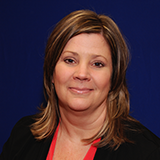The Academy of Oncology Nurse & Patient Navigators (AONN+) Survivorship Committee has relaunched itself with 13 members, 5 of them new, and a new chair. The mission of this committee is to advance survivorship care throughout the continuum by providing resources and evidence-based education to clinical navigators and nonlicensed patient navigators.
The committee would like you to take a few minutes to ask yourself the following questions: What does survivorship care mean to our patients? What does survivorship mean to you as a healthcare provider and to your organization? What makes survivorship meaningful for patients and families? What resources do you as a member of AONN+ need to provide excellent care before, during, and after cancer? These are key questions that should drive the work of this committee and the care provided by AONN+ members.
Navigators, both clinical and nonlicensed, work with patients and families to facilitate a successful transition of living through and beyond cancer. As the healthcare system is moving toward value-based care, providing meaningful quality survivorship care will not only help our patients but also assist our organizations to drive down healthcare costs, show a return on investment, and improve clinical outcomes and patient experience.
How to Make Survivorship Meaningful
- Encourage open discussion around goals of care and advance care planning
- Empower patients and families to take ownership for healthy living
- Provide long-term side effect management and follow-up
- Provide beneficial care to specific populations
- Understand that survivorship starts at diagnosis and continues throughout the cancer journey
- Provide end of treatment summaries and healthy living strategies in creative and innovative ways
- Utilize technology to further survivorship care
- Support purposeful discussions
- Use metrics to gather data to improve care and overall outcomes
- Promote palliative care
- Tear down barriers to care
- Ensure that we address needs of cancer minority populations
- Create survivorship care plans that translate care and future health promotion
- Incorporate primary care providers in survivorship aftercare
The American Cancer Society predicts that by 2026 there will be 20.3 million cancer survivors in the United States.1 Meeting the needs of survivors by addressing future disease prevention and health promotion along with comprehensive management of chronic side effects should be at the forefront of our education in survivorship care. Understanding and managing potential long-term side effects from immunotherapy are an example of how we need to assess moving forward.
As a collective group, we have set the following goals for 2019:
- Develop a 10- to 15-question survey to drill down your needs for successful survivorship
- Create a webinar of “hot topics”
- Present a survivorship session based on needs at the next national conference
- Collaborate with the Technology & Innovation Committee
- Develop a repository for resources
At the recent 9th Annual Navigation & Survivorship Conference, the committee posed 2 survivorship questions to attendees. The first question asked what topic in survivorship care goes unaddressed or overlooked. The top 2 responses were sexuality at 64% and financial toxicity at 12%. The second question asked what topics needed further survivorship education. The top 3 responses were patient navigation, survivorship care planning, and palliative care, which also included end-of-life issues.
We plan on strategizing how we can weave several survivorship issues into next year’s national conference, one of them including the adolescent and young adult population. This population has specific survivorship needs—for example, fertility and sexual health. Recognizing that there are different needs for every survivor, individualized meaningful care should be implemented as a standard. As a committee, we also want to incorporate metrics that have been identified by AONN+ in the domain of Survivorship and End of Life. How can we translate our survivorship care using metrics that show a return on investment for our respective employers and also show clinical outcomes and improved patient experience? The following metrics have been identified in the Survivorship and End of Life domain:
- Survivorship care plan
- Transition from treatment to survivorship
- Referrals to support services
- Palliative care referral
Providing the required number of survivorship care plans identified by the American College of Surgeons Commission on Cancer has been a challenge for healthcare providers nationwide. The committee understands that providing resources to complete this task is high on your list, and we strive to work on this process while demonstrating as an organization that survivorship care should not be about checking a box in order to meet a standard. It is about providing meaningful resources, tools, and assistance to patients, families, and primary care providers to ensure that high-quality healthy living is the recognized standard. Palliative care referrals to support services and transitioning from treatment are metrics that can make a difference in patient outcomes and the future of survivorship care.
Please be on the lookout for a more in-depth needs assessment asking for your feedback on what you want and need as a member to provide successful survivorship care to patients and families. Without your input, we cannot provide the resources you need. We want to hear from you, so please participate in the future survey. You may also reach out to the committee via Nancy Corbitt at This email address is being protected from spambots. You need JavaScript enabled to view it..
As the chair, I want to acknowledge and thank the members of the committee: Jason King, Christina Miller, Cathy Spagnoli, Amy Bearden, Carol Del Campo, Gouri Shankar Bhattacharyya, Debbie McDermott,
Jodi Stoner, Olayinka Odumosu, Patricia Leighton, and Lindsay Pearce.
Reference
- American Cancer Society. Cancer Treatment & Survivorship Facts & Figures 2016-2017. Atlanta, GA: American Cancer Society; 2016.




